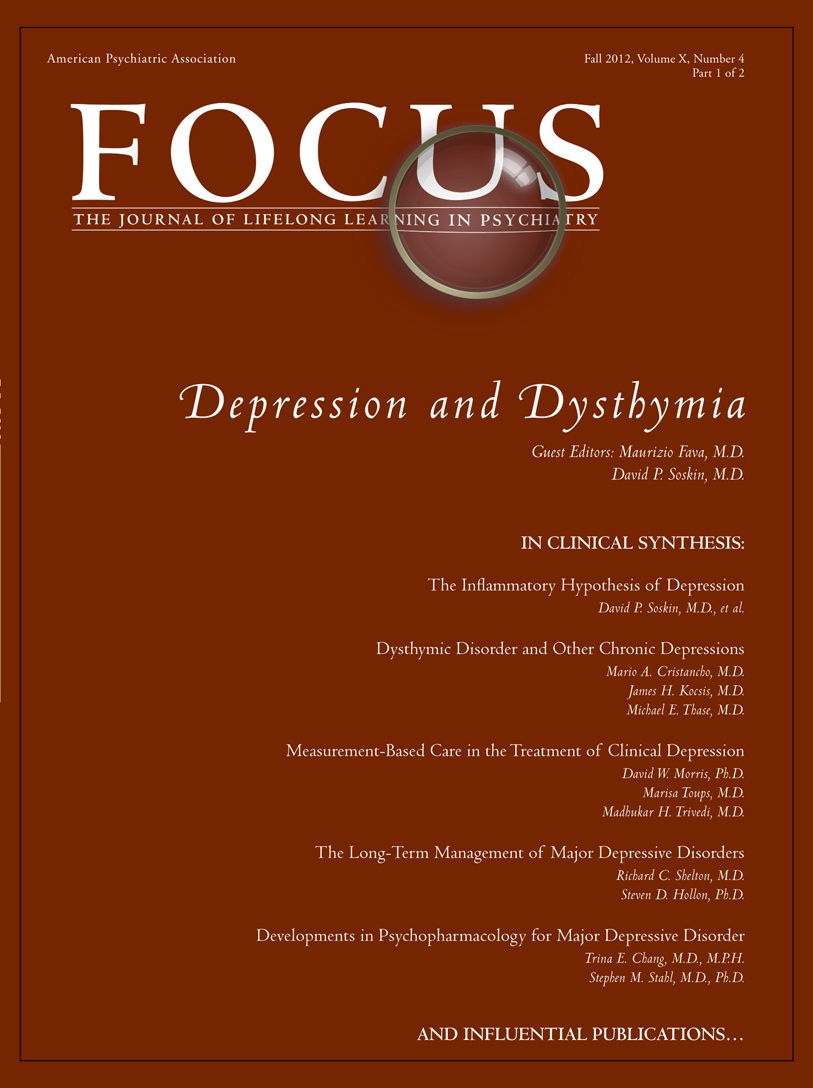Developments in Psychopharmacology for Major Depressive Disorder
Abstract
Abstract:
After years of emphasizing the same monoamine-based neurotransmitter mechanisms for treating depression, the antidepressant medication pipeline is broadening its reach. While serotonin, norepinephrine, and dopamine remain important treatment targets, researchers are working on compounds targeting their receptors in novel ways, as well as different combinations of monoaminergic actions that they hope will lead to improved efficacy and/or decreased side effects. At the same time, other researchers are focusing on completely different avenues of drug development, such as medications that target glutamate or acetylcholine neurotransmission, opioid receptors, or hormonal systems such as vasopressin and melatonin. Advances in pharmacogenetics also offer the possibility of targeting medications more specifically to individuals depending on their likelihood of response or side effects. This article outlines some promising directions for antidepressant drug development and discusses examples for each that have been undergoing testing.



